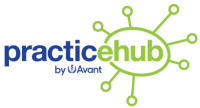Accreditation time can be stressful for practice teams. But it need not be. If you set up processes with the future in mind, you will create a better-quality medical practice, while increasing the likelihood you achieve accreditation.
It's worth remembering why the RACGP developed its Standards for general practices: to protect "patients from harm by improving the quality and safety of health services. The Standards support general practices in identifying and addressing any gaps in their systems and processesâ€.
Keeping this in mind makes it easier to decide on and implement any changes in your practice operations and to ensure those changes meet the Standards.
The 5th edition of the RACGP Standards is more nuanced than the 4th edition. It allows the flexibility for practices to set up policies and procedures that reflect their unique needs. This helps make the accreditation process more meaningful for your practice, as you're creating practice management operations you'll stick to, which in turn helps you maintain your quality and safety processes for enhanced care and reduced risk.
Accreditation is part of the quality improvement journey
Looking at accreditation as a journey of ongoing learning and development – not a single event – helps reduce the worry about assessment day.
While there are specific practice accreditation indicators to satisfy, you're encouraged to think about the intention and outcomes of your systems. This mindset shift helps you develop systems and processes that align with your patient cohort and the specific ways you deliver care, so you can improve your daily operations and enhance your quality of care.
Tips to help you prepare for a successful accreditation
- Adopt a collaborative approach. Involve everyone – doctors, nurses and non-medical staff – in accreditation and in using and contributing to your practice systems.
- Accreditation requires practices to have email and social media policies (Core Standard 6.4, pg. 72), whether or not you use email or social media. When you're writing these policies,refer to the RACGP's 'Using email in general practice' and 'Guide for the use of social media in general practice'. Your IT provider can help you set up an auto-reply email that outlines the rules of engagement for patients. So, if a patient emails you, the auto-reply informs them of your email engagement policies.
- Set regular agenda items in your team meetings to review policies and procedures and how they meet the Standards. Of particular importance are; ethical dilemmas, risk management, quality improvement, email and social media protocols.
- Focus on quality improvement through ongoing development and training (Quality Improvement Standard 1.1.C, pg. 89). Involve the practice team in regular quality improvement activities and track them, so you can see all your progress and provide an incentive to continue. You also have evidence of improvements at accreditation time.
- For the planning and business goals indicator (Core Standard 3.1A, pg. 35), regularly revisit your values statement with your team and refine your code of conduct. Use the goal setting and writing tools in PracticeHub to set SMART goals and action plans to review, track and measure goals.
- For risk management (Core Standard 3.1C, pg. 35) it's important to involve the entire practice team. Set up a risk register with a risk matrix and get their input recording the likelihood and severity of impact of an event, as well as appropriate courses of action. Establish a no-blame culture, making risk management everyone's responsibility.
How PracticeHub helps simplify accreditation
As well as streamlining your daily operations, practice management software, PracticeHub, simplifies accreditation preparation and assessment.
PracticeHub offers an accreditation support service that includes a comprehensive assessment framework fully aligned with the 130 criteria of the RACGP Standards, including specifying how a criterion could be met.
When you set up PracticeHub to improve your systems and processes, you also make it easy to be accreditation-ready:
- Keep all your practice documentation in one place, to save time. So, on assessment day, the surveyors can locate and review your policies and procedures quickly and easily.
- Use the included learning modules to educate new staff about key areas of risk in healthcare. Track staff learning with the inbuilt policy and procedure compliance function. This helps you demonstrate to the surveyors that you have embedded systems and processes designed to improve the overall quality of your practice and update the team.
- Create an audit trail in PracticeHub of your activities and the team's engagement. This helps pre-empt risk and shows surveyors a history of the quality improvements undertaken.
- To prepare for your assessment, filter for accreditation-related policies to focus on what needs updating.
- Give your surveyors a personal log in, so they can review your documentation before the visit, saving time on assessment day.
PracticeHub helps you demonstrate your practice's solid procedural foundations to the surveyors, and your commitment to training and development for the entire practice team so you can deliver better quality care.
Our Ask The Expert webinar has more tips to help you prepare for your accreditation assessment. Watch the webinar replay.
Find out how the PracticeHub platform and our customised accreditation support package can simplify your accreditation, book a demo online or call 1300 96 86 36.

